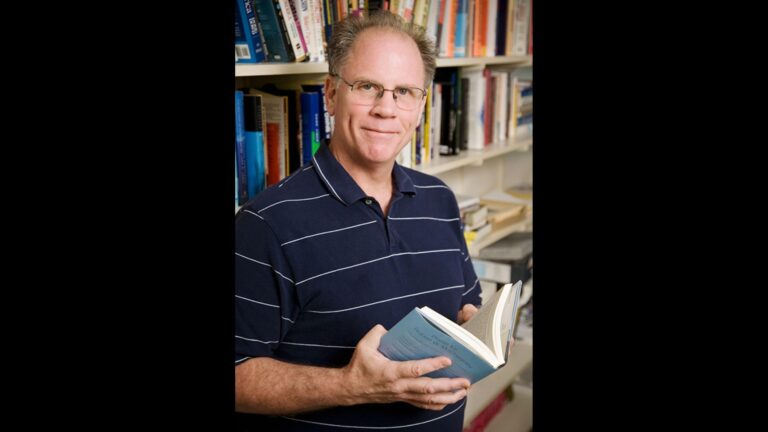Robert W. McChesney, whose books and radio broadcasts denounced corporate domination of mass media, died this week at the age of 72 in Madison, Wisconsin.
From 2002 to 2012, the strains of Thelonius Monk’s “Straight No Chaser” opened McChesney’s radio program Media Matters Sunday afternoons on WILL-AM. The University of Illinois Communication professor often hosted the one-hour program from Madison, where he had taught at the University of Wisconsin before coming to the U of I’s Communication Department.
Media Matters gave listeners the chance to hear and ask questions of some of the leading figures in left-wing and progressive politics. McChesney’s guests over the years included U.S. Senator Bernie Sanders, the late former talk show host Phil Donahue, consumer advocate Ralph Nader, Democracy Now journalist and host Amy Goodman and the scholar and linguist Noam Chomsky.
McChesney’s ability to attract some of the best-known names in the progressive political world was likely possible because he was fairly well-known in that world himself.
He wrote, co-wrote or edited more than two dozen books. In titles such as “Rich Media, Poor Democracy” (2000) and “Digital Disconnect” (2014), McChesney argued that domination of the news media by a few large conglomerates threatened the democratic process. He claimed the result was a weakened news media that was unable to properly serve the public.
In a 2010 speech at the University YMCA in Champaign, subsequently aired on Media Matters, McChesney outlined his fears about the news media in the coming years.
“What we’ll have, though, is not a lack of news,” said McChesney. “We’re still going to have 24-channel news cycles. We’ll still have some semblance of newspapers. We’ll certainly have lots of what’s called news online. But we’ll have very precious little journalism. What we’ll have instead is a golden age of spin and propaganda.”
McChesney saw a role for the government to encourage more diversity in the news media. He argued that such a position was endorsed by America’s founders.
In a 2004 appearance on WILL-AM’s “Focus 580” program, McChesney noted that the federal government established low-cost postal rates for newspapers early on as a way to encourage a wide range of publications.
“The commitment to diversity that the founders had, it was self-interest to some extent,” he said. “Obviously, politicians want their own views to get favored. But I think there was a deep-seated understanding in the American people, as they participated in these debates, that having a diverse range of viewpoints was foundational to having a free society.”
In 2003, McChesney helped co-found the media advocacy group Free Press with journalist John Nichols of The Nation and activist Josh Silver. He served as one of the non-profit organization’s first presidents, leading Free Press to support net neutrality, press freedom, and the expansion of local journalism.
In a news release noting his death, current Free Press president and co-CEO Craig Aaron said McChesney “opened the eyes of a generation of academics, journalists, politicians and activists — including me — to how media structures and policies shape our broader politics and possibilities.”
In an obituary published in The Nation, John Nichols wrote that McChesney kept working in retirement, despite a series of health challenges, concluding with a year-long battle with cancer.
“His was a life fulfilled in the best sense of the word,” Nichols wrote of McChesney. “He died a happy man, holding the hand of his beloved wife, Inger Stole, and reflecting on time spent with his daughters, Amy and Lucy.”

